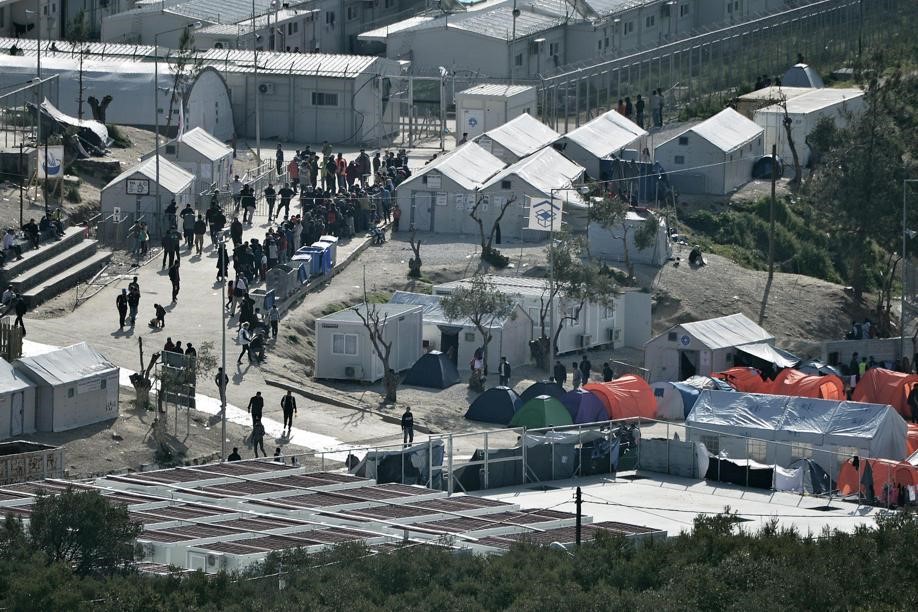Refugees in Lesbos
by Manuel Balota (1999) Gisela-Gymnasium, München/Germany on 2018-01-20

The refugee camp “Moria” on the Greek isle Lesbos looks like a high-security wing. Inside are non-heated tents and soiled toilets. But who isn’t coming in here, doesn’t even have that.
High walls, tons of heavy barbed wire, a watchtower with many policemen and security – “Moria” looks exactly the same like a few months earlier when the Pope visited the camp and compared it to a concentration camp.
More Migrants have arrived: About 5000 newcomers were registered by the UNHCR in September 2017 – in October there were about 4000 new refugees that came with boats from Turkey over the short Aegean route. Most of them heading to Lesbos.
Not all of them are put in the high-security wing. A Syrian refugee stands in front of his tent and watches the barbed wire walls from the outside. He tells that he and about 600 other often young men have to come along by themselves. “They said to us, you are men, who travel alone, you can do what you want, but you stay out. Inside the camp now live families and guys that made problems and are being watched. The nice guys stay out.” Living outside means at the moment without electricity and few to eat: For breakfast they get some Honey with bread and water. Additionally they don’t have toilets or showers, they have to wash themselves in the nature or in the sea, to where they would have to walk three kilometers. “It’s horrible horrible to wake up in the morning not knowing where to go to the toilet or to wash.”, he tells.
Journalists are not allowed to enter the camp “Moria” with only a few exceptions. The security personnel inside is extremely gruff, you hear. Also in the camp there are only dirty toilets and no privacy for women with children. Pregnant women have to live in “Moria” again due to the lack of other options. Only the lucky ones receive fast help – like in the small women’s refuge from the organization Bashira in the old town of Mytilini. “I have no clue how these people can still keep going. Especially many women have suffered during their escape. ‘Welcome in Europe’ means for many ‘welcome in hell’.”, says Sonja Andreu Barradas, the leader of Bashira.
“Ärzte ohne Grenzen” reported on suicide attempts and frequent psychic illnesses. Boris is responsible for the aid on the Greek islands at the UN refugee agency. “Many in Europe and especially in the Greek government have to understand that Moria can’t go on like that another winter.”, he says.
Sources:
· http://www.latimes.com/world/europe/la-fg-greece-refugee-camp-20170905-story.html


